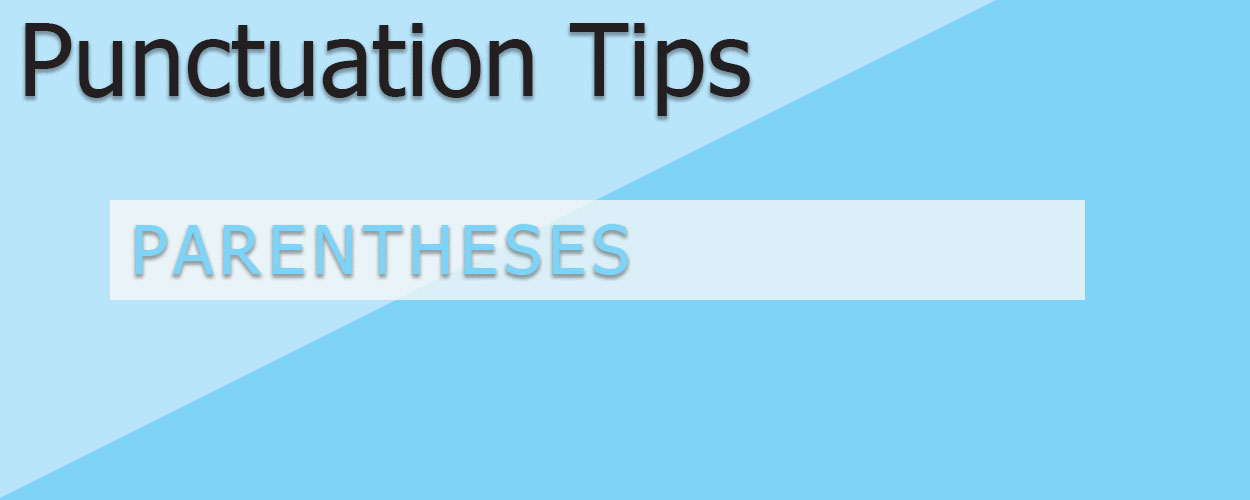

Posted: April 11, 2023
Definition: a punctuation mark; a pair of round brackets ( ) used to mark off a parenthetical word or phrase.
Not to be confused with brackets [ ], chevrons < >, or braces { }. A parenthesis, usually coming in opening and closing pairs called parentheses, are more commonly used in non-fiction, though they can be effective in fiction writing as well, if done correctly. They can be used to enclose parenthetical material or used typographically with numbered lists.
[Related Articles: Punctuation: Brackets]
Use parentheses to enclose material not necessary to the sentence. This means that the sentence should still make sense even without the material.
In fiction, parentheses are used for additional information within a sentence, as asides, or even as complete sentences.
Use parentheses to enclose letters or numbers introducing a list.
Use only an end/closing parenthesis in a lettered/numbered list. This cannot be used within running text.
If any period, comma, colon, or semicolon is used within a sentence, it is placed after the closing parenthesis, not before.
Question marks and exclamation points can be placed within parentheses or not, depending on the context.
Other punctuation, like periods and commas, can be placed inside or outside of parentheses depending on whether the enclosed material is its own sentence or part of the larger sentence.
Aaron, J.E. & Morrison, A. The Little, Brown Compact Handbook, 5th Canadian ed. Pearson, 2013, chap 5
Judd, K. Copyediting, A Practical Guide, 3rd ed. California, CA: Crisp Learning, 2001, chap 4
Tigerpetal Press is a small book press dedicated to publishing local authors and poets.